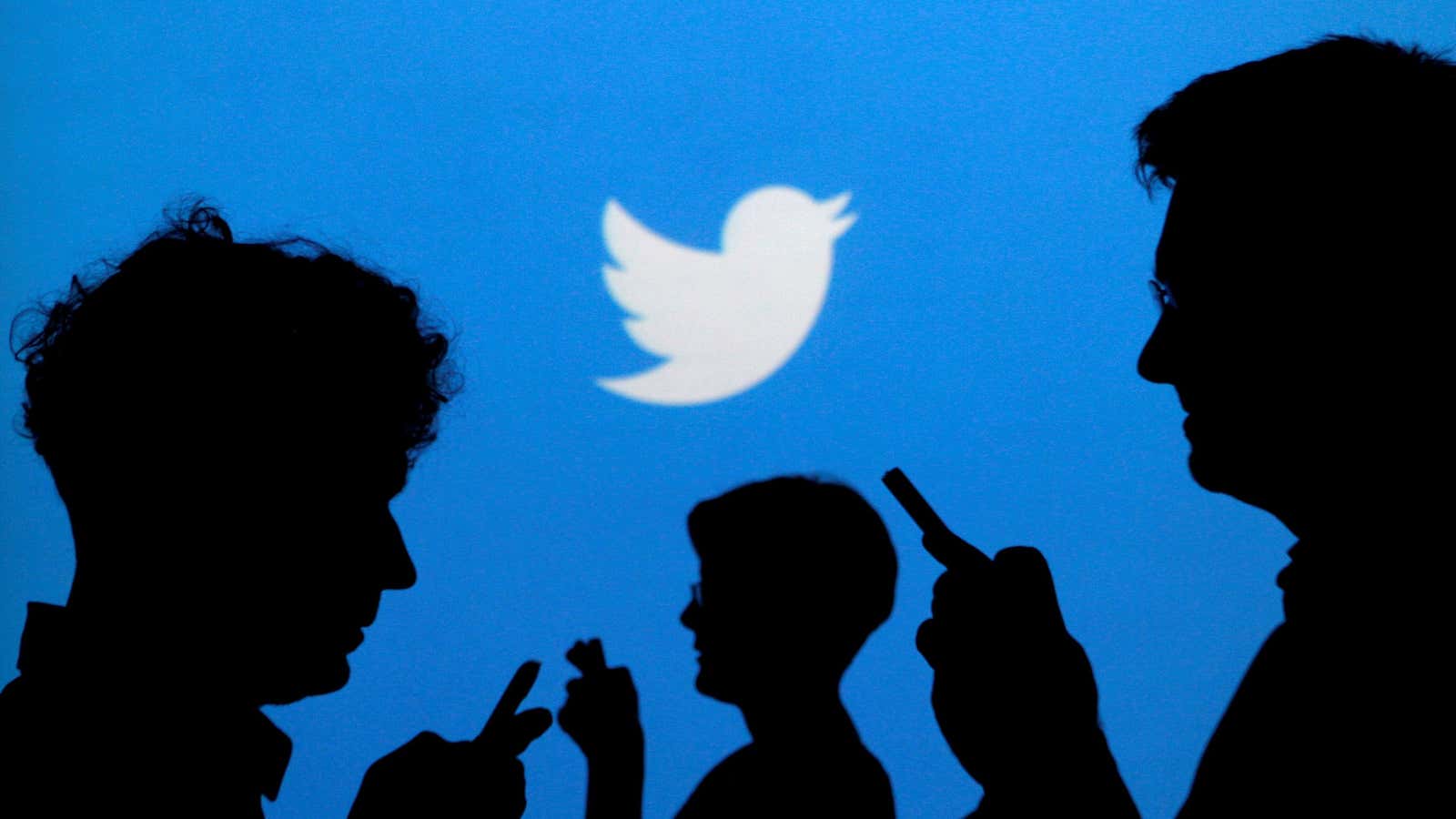Despite what the folks on Twitter might tell you, the folks at Twitter still have not officially recognized the language of Swahili yet.
In early May, stories started circulating that Twitter had recognized Swahili, making tweet translations easier and allowing the language’s almost 100 million speakers to communicate efficiently on the platform. There was a flurry of tweets celebrating the news (ironically, many were in English), mostly from ordinary Twitterzens but from official sources too.
(Quartz Translate: Twitter can now translate Swahili! Before yesterday, it thought Swahili was Indonesian. I am happy because Kiswahili is the first language from Africa on Twitter. Congratulations. #SwahiliIsNotIndonesian na #TwitterRecognizeSwahili! Very good!)
But not so fast. A person familiar with the matter at Twitter told Quartz this isn’t true, yet. The company doesn’t “currently support Swahili but we are looking to expand our localization capabilities as a company.”
A quick check also confirms Swahili is still not part of the 34 languages with a translation widget text function on Twitter’s website. What seems to have changed though is that Twitter no longer misidentifies Swahili words as Latvian or Indonesian. Besides, on platforms including social media dashboard application Tweetdeck, the ability to detect Swahili words in tweets and translate them—albeit not perfectly—isn’t done by Twitter but by Microsoft Translator. The translation cloud service is integrated into multiple products and applications across the web including Windows, Skype, and Bing.
As Africa’s most indigenous spoken language, many have questioned why Twitter doesn’t yet support Swahili or any other African languages. This is especially noteworthy given it’s a popular service with young Africans for giving voice to their activism, enabling dissent against dictators, and to demand more from their leaders. Twitter is also unlike Facebook, which recognizes almost a dozen African languages including Afrikaans, Somali, and Hausa.
Granted, social media campaigns like #TwitterRecognizeSwahili and #SwahiliIsNotIndonesian have helped advance the cause of Swahili on Twitter. The movement is also part of a wider recognition that African languages should not be cast to the periphery but should be at the center of cultural and educational achievement. But for now, it looks like the dream to seamlessly communicate in Swahili—or any other African language—on Twitter will have to wait a little longer.
